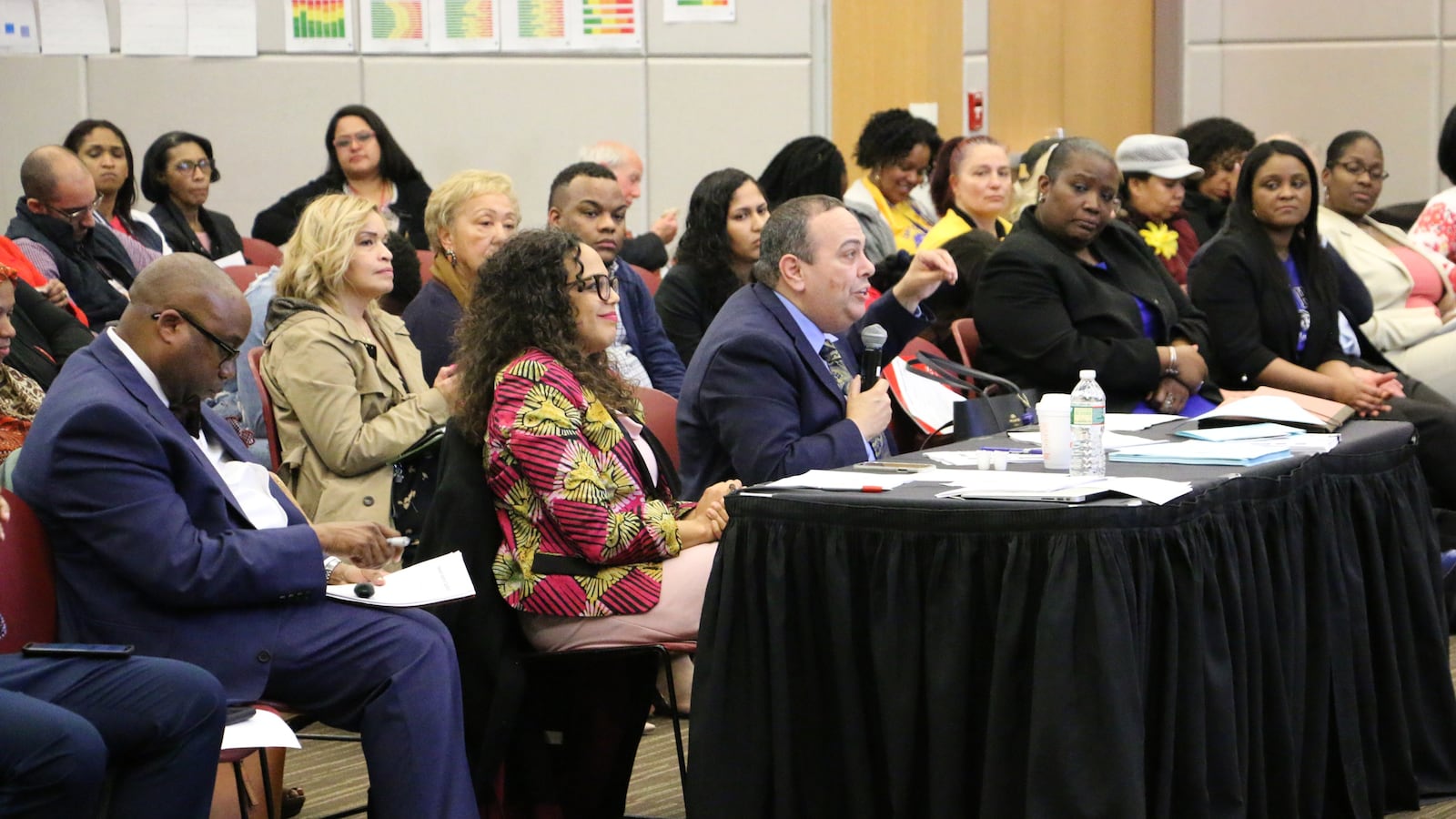Now that the state has ended its decades-long takeover of Newark’s schools, residents have a few thoughts about what should change.
New employees should be screened for biases and trained in cultural sensitivity. Parents should have access to GED programs and language classes. And students should have a say in policy decisions.
Those were just a few of the ideas that parents, students, and community partners presented this week to Roger León, Newark’s first locally chosen superintendent since the elected school board regained control of the district last year.
The recommendations emerged from a series of community meetings and focus groups that the district hosted over the past few months. León said they will inform the master plan he is set to unveil next month — the product of a nearly yearlong process of analyzing the current state of the school system and plotting its future.
While it remains to be seen how many of the suggestions make it into León’s final plan, the outreach was meant to signal a break from the past, when state-appointed officials devised sweeping changes to the schools without always consulting local stakeholders.
“Newark is a city that doesn’t want people to tell them what to do,” León said Wednesday during a four-hour presentation of stakeholders’ recommendations. “We don’t like that.”
As part of his planning process, León also ordered extensive audits of the district’s school buildings, textbooks, and teaching practices. The findings revealed some bright spots — but also urgent needs.
Newark’s school buildings, many of which have been in use for a century or longer, have leaking roofs, peeling paint, and student bathrooms with missing sinks and toilets, the auditors said Wednesday. The district has just one mechanical lift for cleaning the gutters at more than 60 schools, the auditors added.
Another audit focused on students still learning English, who account for about 11 percent of the district’s enrollment. The audit found that those students “grew linguistically” from 2017 to 2018, but that the growth was “insufficient to achieve the district’s goals.” It also revealed “significant and long-term gaps” in support for those students and the programs that serve them.
A third audit, conducted by external consultants, looked at the academics and culture in 30 district schools. (The remaining schools will be visited this fall.) Based partly on surveys of parents, students, and staff, the review concluded that most of the schools do a good job managing student behavior, forming partnerships with the community, and establishing “positive, professional, and collegial” cultures.
But the auditors also determined that many principals do not give teachers enough feedback on their craft, teachers mostly ask students “low-level” questions, and students are often unclear about what they are supposed to take away from lessons. Many schools also struggle to recruit and retain staff, the reviewers found.
A Newark-based consultancy called Creed Strategies led the planning process that resulted in the recommendations. The consultants convened nine advisory groups that focused on such issues as community engagement, student supports, and special education. (Creed has not released the names of the group members, but they included representatives of local philanthropies, businesses, and universities.) The consultants also hosted public feedback sessions in each of the city’s five wards, where community members and school employees reviewed student data and proposed ways to achieve better outcomes.
Among the other recommendations presented on Wednesday: let teachers help revamp the way they are evaluated, create a parent resource center, better integrate students with disabilities into general-education classes, design an app to help the district communicate with families, and improve relationships between students and school safety agents.
“Walking into that building, I need to know that I’m going to be safe,” said Yamin Reddick, a student at Central High School. “And if I don’t know you as I security guard, then what are you there for?”
The district’s previous superintendent, Christopher Cerf, who was appointed by the state, also convened a series of public forums to gather feedback for his three-year plan, which expires this year. His predecessor, Cami Anderson, sparked outrage when she announced a district overhaul developed without public input, which called for the closure of multiple schools.
León said he will incorporate the stakeholders’ ideas into his one-year plan, called Clarity 2020, which he is set to release June 13, and into a subsequent 10-year district roadmap. Before receiving the recommendations, he has already launched a number of initiatives, which some critics have said came with few details or stated goals.
But Linda Carter, a Newark education activist and professor at Essex County College, commended León for seeking input for his forthcoming plans from people with a wide range of backgrounds and opinions. Carter, who was a member of one of the advisory groups, said the process should be a model for districts across the country.
“That was an example of valuing the community,” she said. When it comes to making decisions about their schools, Newarkers “haven’t felt in a very long time that they were valued.”

